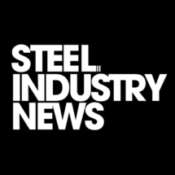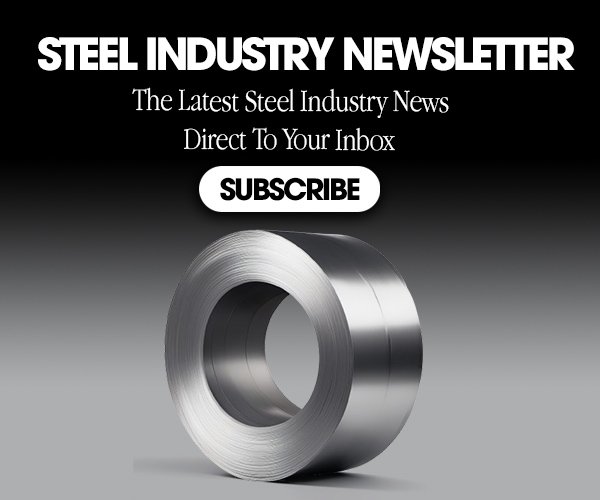President-elect Donald Trump has recently made headlines with his strong opposition to the proposed acquisition of U.S. Steel by Japan’s Nippon Steel. This $14.9 billion deal, announced in December 2023, has sparked significant debate about the future of American manufacturing and national security. In this comprehensive analysis, we’ll explore Trump’s position, his proposed strategies to strengthen U.S. Steel, and the potential impacts on various stakeholders.
Trump’s Opposition to the Nippon Steel Acquisition
Trump has been unequivocal in his stance against the takeover of U.S. Steel by Nippon Steel. In a recent statement on his Truth Social platform, he declared:
“I am totally against the once great and powerful U.S. Steel being bought by a foreign company, in this case Nippon Steel of Japan.”
This statement reflects Trump’s commitment to protecting American industry and jobs, a core tenet of his “America First” economic policy that characterized his previous administration. He views foreign ownership of critical industries as a threat to economic independence and national security.
Key Points of Trump’s Opposition
Trump’s opposition is grounded in several key concerns:
- Foreign Ownership: He believes that allowing a foreign company to acquire U.S. Steel undermines American sovereignty and control over vital resources.
- Job Protection: There are fears that such an acquisition could result in job losses within the U.S. steel industry, impacting thousands of workers.
- Strategic Importance: Trump emphasizes that steel is a critical industry for national security and infrastructure development, making it essential to keep it under American control.
Trump’s Plan to Strengthen U.S. Steel
In lieu of allowing the acquisition, Trump has proposed a two-pronged approach aimed at revitalizing U.S. Steel: tax incentives and tariffs. He stated:
“Through a series of Tax Incentives and Tariffs, we will make U.S. Steel Strong and Great Again, and it will happen FAST!”
Tax Incentives
While specific details of Trump’s tax incentive plan have not been fully outlined, we can speculate based on his previous policies. Potential measures might include:
- Reduced Corporate Tax Rates: Lowering taxes for steel manufacturers could enhance their competitiveness.
- Accelerated Depreciation: Allowing manufacturers to quickly write off investments in new equipment and facilities may encourage modernization.
- Job Creation Credits: Offering tax credits for companies that hire new workers in the steel sector could stimulate employment.
- Research and Development Credits: Providing incentives for innovation in steel production would help improve efficiency and product quality.
These incentives aim to stimulate investment in U.S. Steel and other domestic producers, leading to modernization efforts that could enhance competitiveness against foreign rivals.
Tariffs
Trump’s use of tariffs as a trade policy tool is well-documented from his previous term. In the context of the steel industry, we might expect an expansion of tariffs on imported steel products. This could include:
- Increased Tariffs on Imports: Similar to the 25% tariff imposed in 2018 under Section 232, further tariffs could be implemented to protect domestic producers.
- Targeted Tariffs on Specific Countries: Countries accused of unfair trade practices, particularly China, may face additional tariffs designed to level the playing field for American manufacturers.
By implementing these tariffs, Trump aims to reduce reliance on foreign steel and encourage domestic production.
Potential Effects on Stakeholders
Trump’s proposed policies would have far-reaching effects on various stakeholders involved in or affected by the steel industry.
1. U.S. Steel and Domestic Producers
For U.S. Steel and other domestic producers, Trump’s policies could provide significant benefits. Protection from foreign competition would likely lead to increased domestic demand for American-made steel products. This could result in higher profitability for companies like U.S. Steel while potentially leading to job creation as production ramps up.However, there are also potential drawbacks to consider. The loss of investment from a major player like Nippon Steel could hinder technological advancements that might have come with the acquisition. Additionally, if tariffs lead to retaliatory measures from trading partners, U.S. exporters could face challenges in accessing international markets.
2. Steel-Consuming Industries
Industries that rely heavily on steel as a raw material—such as automotive manufacturing, construction, and appliances—may encounter challenges due to rising input costs associated with increased tariffs on imported steel products. Higher prices for steel could squeeze profit margins for these industries, potentially leading to job losses as companies seek to cut costs. A study conducted by economists Lydia Cox and Katheryn Russ highlights this issue well; while tariffs may have saved around 1,000 jobs in steel production, they likely resulted in approximately 75,000 fewer manufacturing jobs in firms reliant on steel inputs.
3. Consumers
Consumers may also feel the impact of these policies through potentially higher prices for products containing steel—such as cars, appliances, and construction materials. Increased costs associated with tariffs could lead to inflationary pressures across various sectors of the economy.
4. International Relations
Trump’s stance against the acquisition also carries implications for international relations. By opposing foreign ownership of key industries like steel, he risks straining relationships with allies such as Japan while potentially inviting retaliatory trade measures that could harm U.S.-based exporters.
Case Study: The 2018 Steel Tariffs
To understand the potential impact of Trump’s proposed policies more clearly, it’s instructive to examine the effects of the 2018 steel tariffs implemented during his previous administration:
- Reduction in Steel Imports: The tariffs successfully decreased imports of foreign steel into the United States.
- Increase in Domestic Prices: As a result of reduced competition from abroad, prices for domestically produced steel rose significantly.
- Mixed Impact on Jobs: While some jobs were created within the domestic steel industry due to increased production needs, many more were lost in downstream industries reliant on affordable steel.
- Economic Cost: Estimates suggest that while around 1,000 jobs were saved in steel production due to tariffs, they cost consumers and businesses approximately $900,000 per job saved.
This case study illustrates both the potential benefits and unintended consequences associated with protectionist trade policies.
The Broader Context: U.S. Manufacturing and Trade Policy
Trump’s stance on the U.S. Steel acquisition reflects his broader views on manufacturing and trade policy in America:
- Economic Nationalism: His administration prioritizes domestic production over reliance on imports.
- Protectionist Measures: Utilizing tariffs as a shield against foreign competition is a hallmark of his economic strategy.
- Skepticism Toward Globalization: Trump tends to view international trade through a lens focused on national interest rather than mutual benefit.
Challenges and Criticisms
Despite Trump’s intentions behind these policies, they face several challenges and criticisms:
- Economic Efficiency Concerns: Critics argue that protectionist measures often lead to higher costs for consumers while reducing overall efficiency within the economy.
- Risk of Retaliation: Trading partners may respond with their own tariffs or restrictions on U.S. exports if they perceive American policies as unfair.
- Compliance with WTO Rules: Aggressive use of tariffs may conflict with World Trade Organization regulations designed to promote free trade.
- Impact on Innovation: Some experts warn that protectionism can stifle innovation by reducing competition among domestic firms.
The Road Ahead
As we approach the 2024 election cycle, the future trajectory of U.S. Steel and American trade policy remains uncertain. Several factors will influence this outcome:
- Election Results: The success or failure of Trump’s campaign will determine whether these proposed policies are enacted.
- Congressional Support: Gaining bipartisan support will be crucial for implementing any significant changes.
- Economic Conditions: The state of both the U.S. economy and global markets will play a role in shaping policy decisions.
- International Reactions: How trading partners respond will affect negotiations moving forward.
Conclusion
Trump’s opposition to Nippon Steel’s acquisition of U.S. Steel highlights his commitment to protecting American industry through proposed strategies involving tax incentives and tariffs aimed at revitalizing domestic production capabilities. While these measures may bolster U.S.-based manufacturers like U.S. Steel by providing them with necessary protections against foreign competition, they also carry potential risks for consumers and downstream industries reliant on affordable steel inputs. As discussions around these policies continue among policymakers, industry leaders, and voters alike, it is essential to weigh both short-term benefits against long-term consequences for American manufacturing’s future within an increasingly competitive global landscape. The decisions made regarding these proposals will not only shape the fate of U.S. Steel but also influence broader economic dynamics across various sectors—ultimately impacting everyday Americans who depend upon stable prices for goods manufactured using steel products.
If you enjoyed this article about U.S. Steel and Nippon Steel check out some of our other articles on the subject:
Trump Announces New Tariffs on Mexico, Canada, and China: A Comprehensive Analysis
Trump’s Re-election and Potential Impact on the U.S. Steel Industry
U.S. Steel-Nippon Steel Merger: Arbitration Looms as Global Hurdles have Cleared
U.S. Steel “Corrects the Record” on Transaction with Nippon Steel
EU Approves Nippon Steel – U.S. Steel Acquisition, US DOJ Review Ongoing
Nippon Steel U.S. Steel Acquisition Update
Automakers Challenge Potential Cleveland-Cliffs-U.S. Steel Merger
Nippon Steel Determined to Acquire U.S. Steel Despite Scrutiny
Biden and Trump Oppose Nippon Steel’s U.S. Steel Acquisition
U.S. Steel Acquisition: Nippon Embraces USW Challenge
Be sure to subscribe to the Steel Industry Newsletter below for the latest steel related news direct to your inbox!
By subscribing you agree to our Terms of Use, our Privacy Policy and our Information collection notice










